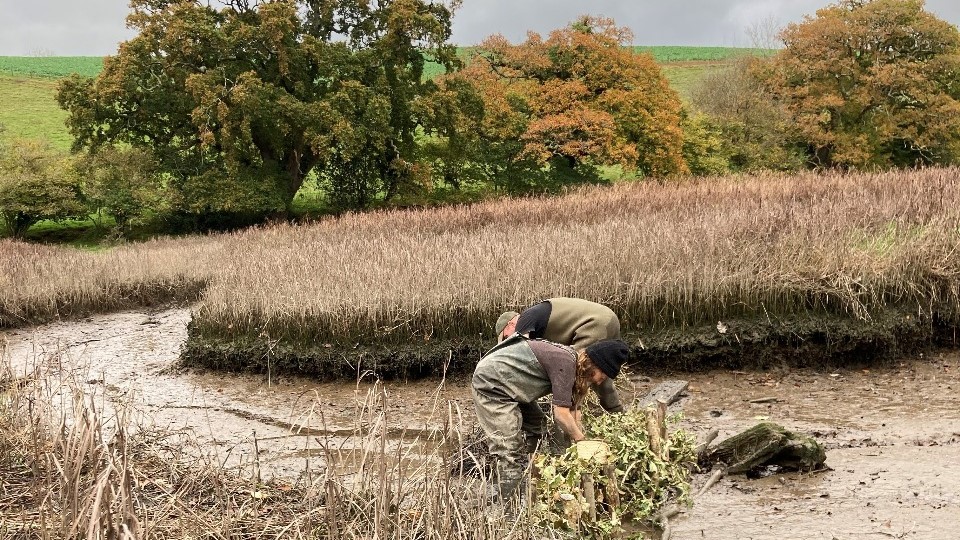The work to repair and revive rare intertidal habitat is being done by several organisations including the Environment Agency, Bioregional Learning Centre (BLC), Dart Harbour and Navigation Authority plus 9 other partners.
With £200,000 of funding from the Environment Agency, Duchy of Cornwall, South Hams District Council and South Devon National Landscape, work is well underway to restore around 4 hectares of marshes.
The restoration work is important because more than 85% of England’s saltmarsh has been lost in recent centuries to development pressure, land use change and coastal squeeze – with the potential to lose more to sea level rise and climate change. Saltmarshes are essential as they capture carbon, protect shorelines from erosion, provide habitat for fish, birds and other wildlife and help clean water.
Emma Magee, the Environment Agency’s South Devon catchment coordinator, said:
“These places are too important for people and wildlife to let them just slip away. We need people to see and feel a connection to these places to help care for them.”
There is plenty of evidence of that connection with more than 200 hazel and willow bundles being made by volunteers from Parklife South West CIC and nature recovery trainees. These bundles will be staked into the marshes to build up sediment levels and plant life.
As well as delivering the bundles, Dart Harbour has also run boat trips to take people out to see the marshes.
New, rare and protected plant species have been recorded for the first time and international saltmarsh experts are helping advise on plans to make the most of this opportunity.
Paul Britton, Dart Harbour and Navigation Authority’s harbour master, said:
“It’s great to be getting spades in the mud. As stewards of this stunning estuary, we are very pleased to be playing our part in restoring these vital habitats, providing our staff, boats and equipment to work alongside scientists and local volunteers on these fragile ecosystems.”
The Saltmarsh Artist Collective is planning a Saltmarsh celebration day early next year in Totnes with an installation, workshops and film screenings. Local school children are making seed bombs with seeds collected on the marsh to help colonise new stretches of mud flat. Schumacher College students have also visited the reedbeds at Sharpham.
Jane Brady, co-founder of BLC, said:
“The significance of this partnership for us is that it elevates the role of a place-based Community Interest Company in restoring a constellation of saltmarsh clusters to health.”
Tom Stratton, land steward for the Duchy of Cornwall in Devon, said:
“We have a strong interest in the sustainability and resilience of all our natural systems and this project provides an early example of saltmarsh restoration in the South West which we hope will protect this valuable resource for years to come whilst storing carbon and providing unique habitat.”



